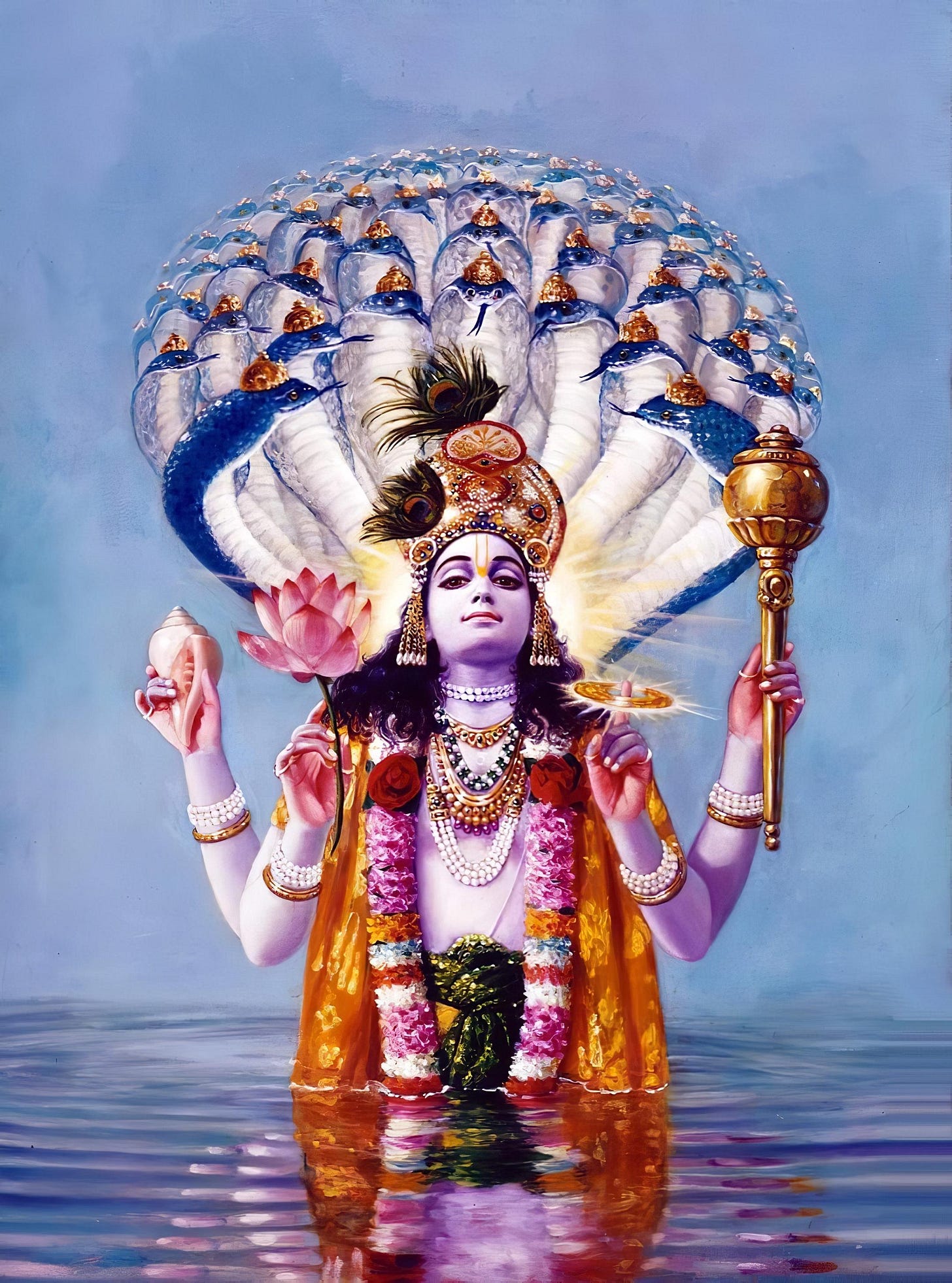Brahman means the soul?
Another possible objection is to the meaning of the word “brahma”. Some will argue that it can also be used to refer to the individual soul and not to the Supreme Lord.
« Vedānta-sūtra: The Govinda-bhāṣya of Baladeva Vidyābhūṣaṇa
« Sutra 1.1.1 - athāto brahma-jijñāsā (Beginning of the topic)
Brahman means the soul?
Concluding the topic on the discussion of athāto brahma-jijñāsā, another possible objection is to the meaning of the word “brahma”. Some will argue that it can also be used to refer to the individual spirit soul, and not only to the Supreme Personality of Godhead. Even the dictionary explains: “The word brahma means that which is big, the brahmana caste, the individual spirit soul, and the demigod Brahma who sits on a great lotus flower.”
To understand the correct meaning, words need to be interpreted according to the context of the passage and other scriptural references. The word brahman is consistently used in the Vedas to refer to the Supreme Lord, as it will be made clear through the book. Take this passage of the Taittirīya Upaniṣad, for example:
bhṛgur vai vāruṇiḥ, varuṇam pitaram upasasāra
adhīhi bhagavo brahmeti
tasmā etat provāca, annam prāṇam cakṣuḥ śrotram mano vācamiti
tam hovāca
yato vā imāni bhūtāni jāyante, yena jātāni jīvanti
yatprayantyabhisamviśanti tad vijijñāsasva
tad brahmeti
sa tapo’tapyata, sa tapas taptvā“Bhṛgu, the son of Varuṇa, approached his father and inquired: “O my Lord, my respected father, please teach me about Brahman.” His father then spoke to him: “Food, prāṇa, seeing, hearing, the mind, and speech are Brahman. From Him, all beings arise. From Him, they all obtain sustenance, and unto Him, they at last return. This Brahman you should now seek.” Bhṛgu then fixed himself in thought and practiced austerities, and, as a result, acquired spiritual realization.” (Taittirīya Upaniṣad 3.1.1)
When we analyze this passage, we see that the word “Brahman” can’t be interpreted as being the individual soul, because the Brahman mentioned has qualities that are found only in the Supreme Personality of Godhead. It does not make sense to argue that the individual soul is the cause of all living beings, that it maintains all living beings, and that it merges into itself. These qualities can be attributed only to the Supreme Lord, and thus it is not possible to interpret the word Brahman differently.
Next: How does the original text of Baladeva Vidyābhūṣaṇa look? »
« Vedānta-sūtra: The Govinda-bhāṣya of Baladeva Vidyābhūṣaṇa


